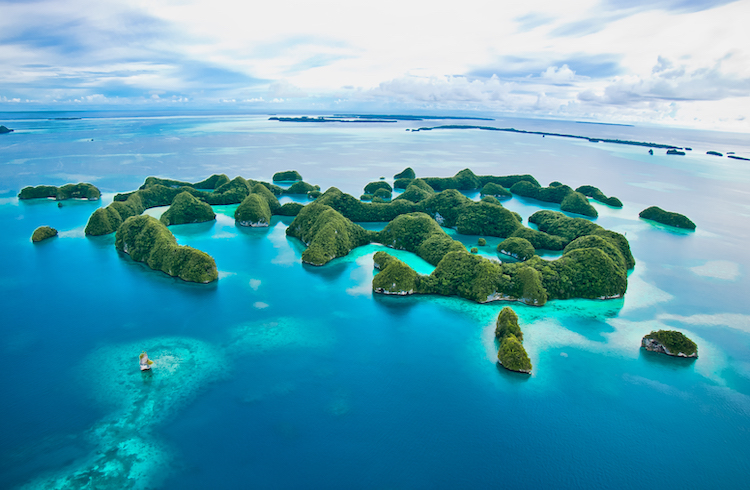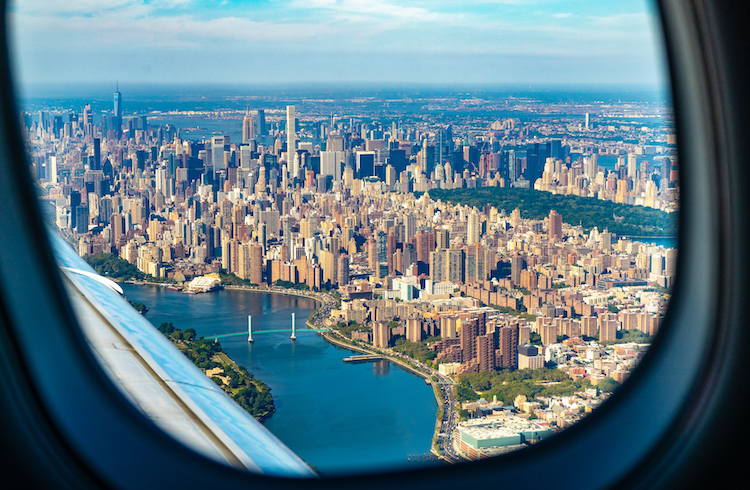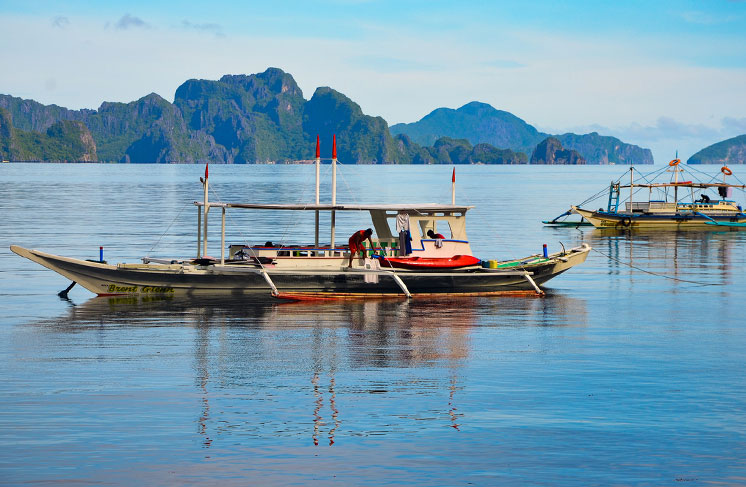5 Eco-friendly Travel Destinations Helping the Planet
When planning your trip, think about spending your tourism dollars in the places going the extra mile to make sustainability a priority.
Shares
 Photo © Getty Images / Wendy A. Capili
Photo © Getty Images / Wendy A. Capili
- Costa Rica’s environmental credentials
- New York City’s eco initiatives
- Singapore’s green skyline
- Portugal’s sustainable cities
- The Palau Pledge
Sure, we can bring our own reusable water bottle and reef-safe sunscreen when we travel, and we can opt to use bicycles and public transportation instead of taxis, but what about the sustainability-consciousness of the actual destinations we visit? As eco-minded travelers, we certainly should make choices while traveling that help reduce our own carbon footprint, but if we want to go a step further, we can also actively seek out destinations that are prioritizing sustainability.
Not only does visiting sustainable destinations incentivize and reward cities, businesses, and individuals that are environmentally responsible, but doing so also just makes it easier for we travelers to do the right thing. Here are some of the most eco-minded destinations around the world that are doing their best to be greener for the planet and more livable for their residents.
Costa Rica’s environmental credentials
The Central American country of Costa Rica is often held up as the poster child of sustainable travel and with good reason. In Costa Rica, sustainability is not just a mantra that is preached to draw in eco-minded tourists, it is a closely-held belief that has trickled down across the entire population. Not only do you see large players like the government, tourism board, and non-profit leaders taking major steps to protect natural resources, but you see individual hotels eliminating single-use plastics and prioritizing locally-produced food and personal care products. Costa Rica was recognized by the United Nations as a “Champion of the Earth” and the country has its own official national certification system for businesses that are avoiding gas emissions, using biodegradable products, reducing waste, recycling, conserving water, and hiring from local communities.
Renting a car to explore the country certainly is possible but it’s also easy to catch buses from town to town. Just about anywhere you go, hiking, biking, surfing, zip lining, tubing, rafting, and wildlife watching opportunities await – all of which emphasize and engage directly with the stunning surrounding environment without reliance on gas-guzzling vehicles.
New York City’s eco initiatives
New York City may be best known for tourist meccas like the Brooklyn Bridge, Broadway, and Times Square but The Big Apple is also one of the most sustainable cities in the United States. Travelers may not interact with the citywide composting efforts or textile recycling programs that are still very rare elsewhere in the country but they surely will benefit from an extensive and easy-to-navigate subway system, a growing network of inter-borough ferries, a thriving network of bike lanes, and an ever-expanding bike share program – not to mention an abundance of restaurants specializing in locally- and sustainably-grown food!
Not only does New York City make it easy for visitors to explore by foot, bicycle, or public transportation, but loads of buses and trains leave the City That Never Sleeps every day for Boston, Philadelphia, and Washington D.C., meaning you can easily explore multiple cities in the Northeast region without having to rent a car or book a flight.

Singapore's green credentials
When you arrive in Singapore, the first thing you’ll notice will probably be its unique skyscrapers. The second thing you’ll notice will probably be that most of the skyscrapers (and just about all the office and apartment buildings) are covered with greenery. These rooftop, balcony, parking lot, and wall-climbing vertical gardens make the city extraordinarily beautiful while also improving air quality, producing food, and providing habitat and nourishment for birds and insects. In fact, Singapore aims to have 80% of its buildings achieve Green Mark Certification (a sustainable development certification) by 2030. This sovereign island city-state aims to become one of the most sustainable urban destinations in the world and their national carrier, Singapore Airlines, recently announced their commitment to achieve net zero carbon emissions by 2050, partially through the usage of sustainable aviation fuel. Much of Singapore can be explored on foot or by bike (and there are several bike share programs to choose from), but the Tourism Board is also working with local hotels and attractions to develop and implement new sustainability standards, such as transitioning to 100% renewable resources by 2030.
Portugal’s sustainable cities
Portugal has not one, but two cities that stand out in terms of sustainability. Capital city, Lisbon, has a thriving network of buses, trolleys, and electric bikes (meaning taxis and rental cars are completely unnecessary) but for those that do drive, the city has one of the largest electric vehicle charging networks on the continent. Lisbon, which has made substantial strides to reduce CO2 emissions, along with water and energy consumption, was even named the 2020 Green Capital of Europe.
Further north in the city of Águeda (about an hour south of Porto), the focus has been on improving air quality by promoting non-motorized transportation and making public transportation more energy efficient. The city has also added new pedestrian walking trails, car-free zones, and bike lanes while encouraging the use of the public e-bike system both among locals and tourists.
The Palau Pledge
Climate change is a palpable threat to the existence of the hundreds of islands that make up the Micronesian nation of Palau. As such, the country teamed up with international sustainability organizations in an effort to become the world’s first carbon neutral destination. The goal of the program is not only to conserve coastal ecosystems and neutralize the carbon footprint imposed by tourism, but to also increase local food security and empower women to participate more fully in the tourism industry. In 2020, the country also introduced a ban on the sale and use of sunscreens that are believed to be harmful to coral reefs.
Palau is also the first nation to create an eco-responsibility pledge for travelers to sign before entering the country. Drafted by local children, the Palau Pledge includes a checklist of things that visitors promise to not do, such as not littering, feeding sharks, or collecting marine souvenirs like coral and shells, along with a list of things to do, like learning about local culture and supporting small businesses. As of this writing, nearly 600,000 people have taken the pledge.
Related articles
Simple and flexible travel insurance
You can buy at home or while traveling, and claim online from anywhere in the world. With 150+ adventure activities covered and 24/7 emergency assistance.
Get a quote



No Comments